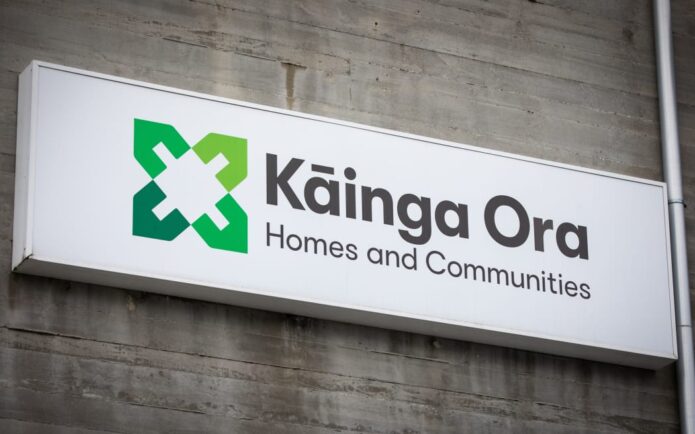PHOTO: REA GROUP
Often cited as the densest year of technological innovation of all time, 1995 stands out for several reasons; The launch of the world’s first internet enabled marketplaces (Craigslist and eBay), the start of online dating (Match.com), the first fully digital, animated feature film (Pixar’s Toy Story) and of course, a humble “bookseller” was born (Amazon.com). While lesser known, 1995 was also the year the greatest internet startup in antipodean history was founded, REA Group.
Just like the great tech tales of Silicon Valley, our Aussie protagonist (REA Group) was started in a garage (1995), IPO’d just before the dotcom bust (1999) and lost ~90% of its value shortly thereafter (2001). However just before complete failure, it was dealt a dose of good fortune, with Rupert Murdoch and his global media empire, News Corporation stepping in and providing a much-needed capital injection. News Corp. took 44% of REA Group (realestate.com.au at the time) in exchange for A$2 million in cash plus A$8 million worth TV and print advertising, giving REA Group a total equity valuation of A$23 million. Fast forward twenty years to today and News Corp. owns 61% of REA Group which has a market capitalization of A$21 billion, or 910 times the valuation Murdoch paid in 2001. For comparison, a purchase of Amazon stock at its low point after the dotcom bust would have returned 510 times the initial investment today, or less than two-thirds what REA Group delivered (excluding dividends), which earns it a place among the greatest internet start-ups of all time.
WE DON’T ROAST OUR BEANS UNTIL WE HAVE YOUR ORDER
Aside from being a multi-decade compounder for shareholders, REA Group holds one of the most privileged positions in real-estate of any company in the world. Real-estate markets tend to be highly localized, with the comparable property radius only extending to surrounding neighborhoods, creating fragmented, non-uniform supply dynamics, which are highly supportive for an online marketplace like REA Group which can aggregate that supply more uniformly. In addition to this, the Australian market is unique, in that it is impossible to function as a real-estate agent (or broker) without a subscription to REA Group’s professional tools and access to its property listing portal, which as we will discuss, is entrenched with buyers and renters in the Australian market.
Through its flagship portal (realestate.com.au) REA Group has become “the destination” for real estate in the Australian market with ~65% of Australia’s adult population (12 million people) checking property listings, real estate news, and home prices on the site every month. Additionally, REA Group continues to increase its lead over the number two player (Domain Holdings), reaching 6 million more Australians and attracting over three times the monthly visitators of its peer, a gap which continues to widen.
REA Group is Australia’s #1 Property Portal

Source: REA Group
Adjacent to its privileged position with Australian real-estate customers, REA Group also has an indispensable relationship with real-estate agents. To effectively operate in the Australia market a real-estate agent has very few choices outside of subscribing to REA Group’s agent administration tools to find clients, build an online profile and market their listings, this has translated into extremely strong and durable pricing power for REA Group. While the official strategy is to support agents and remain in their servitude forevermore, one cannot help but observe the increasingly potent value-added services it offers property buyers, sellers and renters, slowly disintermediating agents in the value chain, which is the natural progression of a genuine two-sided marketplace like the one REA Group oversees. As REA Group continues to reduce friction costs of buying, selling, and renting properties for customers, it is likely to capture a larger share of transaction economics over time.
While officially, REA is solely focused on helping real-estate agents do their job better, rather than replacing them in the value chain, one cannot help but be somewhat skeptical of the official narrative. Given the natural progression of a genuine two-sided marketplace like REA Group, it is likely to continue reducing friction costs of buying, selling, and renting properties for customers and it is likely to capture a larger share of transaction economics over time. Similar to other internet enabled marketplaces that have served perform functions (e.g. Amazon, eBay, Uber, etc).
To put some numbers around the potential opportunity for REA Group, broker commissions in Australia are currently 1.0-2.5% of the sale price of a property, while advertising costs are only 0.2-0.4%. To the extent REA Group continues to migrate towards a clearinghouse function, providing increasing value to customers, we would expect this gap to close and deliver an order of magnitude increase in the earnings potential for the business. Additionally, COVID-19 has accelerated and reinforced the central role REA Group plays in the Australian property market and the online future of the industry by accelerating the introduction of products and services that are years ahead of their time (virtual tours, online auctions, payment on sale, etc).
Furthermore, there are 1.8 million active users logged-in to REA Group’s portal which is growing rapidly, translating into significant data advantages and increasingly attachable insights on buyers, sellers, and renters. This drives a more enjoyable and seamless property experience for customers through a virtuous loop (aka flywheel) in which REA connects consumers of property with providers of property, aggregating both supply and demand, reducing frictions, increasing choice and delivering superior value, with benefits compounding as both supply and demand scales (network effects).
REA Group’s Property Flywheel

Source: REA Group
READ MORE VIA SHARECAFE














